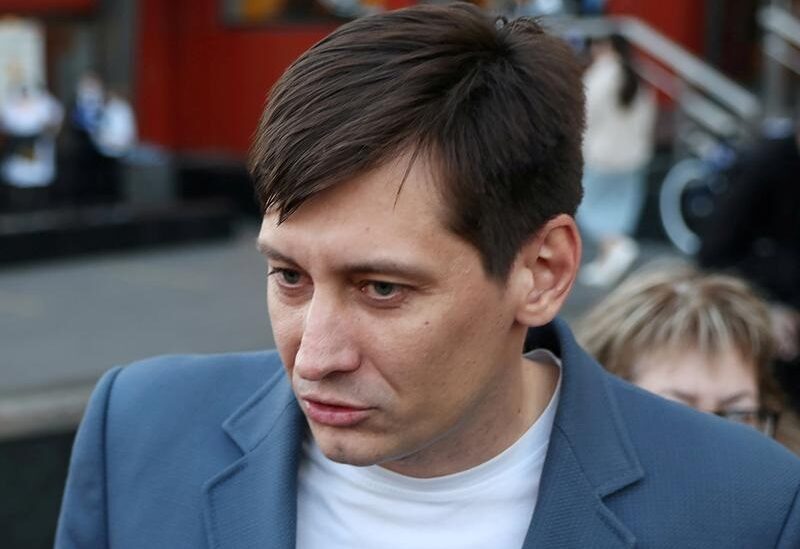
Dmitry Gudkov, a Russian opposition leader who was detained for two days this week, has accused authorities of arresting him and other Kremlin critics on false accusations in order to prevent them from standing in the parliamentary election in September.
The 41-year-old former member of parliament was released by Moscow police on Thursday, but he remains a suspect in a criminal investigation filed over suspicions that he failed to pay a rental property bill.
Gudkov, who denies any ties to the property, told Reuters on Friday that the charges were brought against him to stifle his political ambitions.
“This was a decision not to let (me) run for a seat in the State Duma (lower house) and in elections made at the highest level,” Gudkov said, adding that police had searched his home and arrested his aunt during this week’s operation.
“I honestly didn’t expect they would take my aunt hostage,” said the former MP, who regularly appears at anti-Kremlin protests in the capital.
The Kremlin has said recent arrests of politicians such as Gudkov have nothing to do with politics, and denies trying to clear the field of political opponents.
Gudkov’s arrest on Tuesday coincided with that of Andrei Pivovarov, another opposition figure, who was removed from a flight about to leave for Poland.
Police questioned Pivovarov, searched his apartment and opened a criminal case against him for allegedly violating Russia’s legislation on “undesirable organizations.”
Pivovarov was the director of Open Russia – a now defunct opposition group linked to exiled former oil tycoon and Kremlin foe Mikhail Khodorkovsky – which halted its operations in Russia last month, saying it wanted to stop its supporters from being prosecuted.
Gudkov cited Pivovarov’s arrest and the house arrests of many close allies of Jailed Kremlin critic Alexei Navalny as signs the authorities were trying to rein in the opposition before it could mount a challenge in the September vote.
President Vladimir Putin signed a new law on Friday prohibiting members of “extremist” organizations from running for government. The rule was passed just days before a court considered condemning Navalny’s anti-corruption foundation and regional campaign groups as extremist.
The measure effectively puts a stop to some of Navalny’s allies’ parliamentary election campaigns.
Gudkov, who is also due in court next week for his role in an unauthorized street protest in support of Navalny, expressed fear that the new rule could target him as well.
“I fully recognize that this is not the end,” he stated.